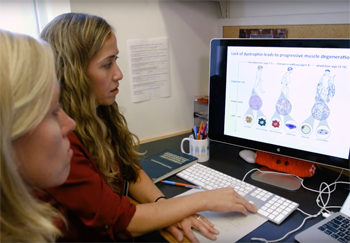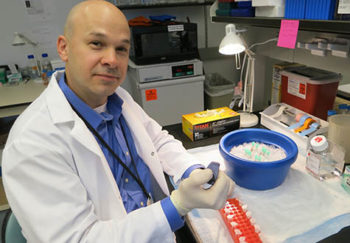
Duchenne muscular dystrophy is a genetic disorder that is characterized by progressive muscular weakness and degeneration. This condition affects 1 in 3,500 boys. It prohibits them from walking by age 12 and sets life expectancy to around the mid-20s.
UVA School of Medicine Seeks Answers to Duchenne Muscular Dystrophy
Many experimental treatments have failed, but UVA is determined to change that with a $2.5 million grant from the National Institutes of Health. This money allows UVA to build an intricate computer model of the disease to figure out what’s undermined previous potential treatments.
With this model, our researchers seek to:
- Better understand how muscle damage and inflammation drives the disease
- Grasp the relationship between movement and inflammation
- Explain why previous treatment attempts have failed in people
- Identify new drugs and treatments that will work in humans
Watch a Video
Learn more about this $2.5 million grant.
I’m personally drawn to this press release, because it highlights the benefits of an academic medical center like UVA, and it showcases how our research capabilities set us apart from other institutions. This particular grant combines engineering and clinical expertise to explore a completely new way of thinking about and understanding Duchenne muscular dystrophy. And the cross-disciplinary team of scientists and doctors is a prime example of UVA’s collaborative work to benefit future generations.
More School of Medicine News
Read more about the other research we published in February:
-
- Asthma drugs could prevent deadly form of pneumonia, research suggests
- Robotic surgery pioneer named director of UVA Transplant Center
- UVA Health System’s Petri named Virginia Outstanding Scientist
- Final artificial pancreas clinical trials now open
- Troubling inconsistency found in dialysis blood testing methods
- UVA, CHKD form regional collaborative for cardiac care


Pray for a cure. Keep up the good work